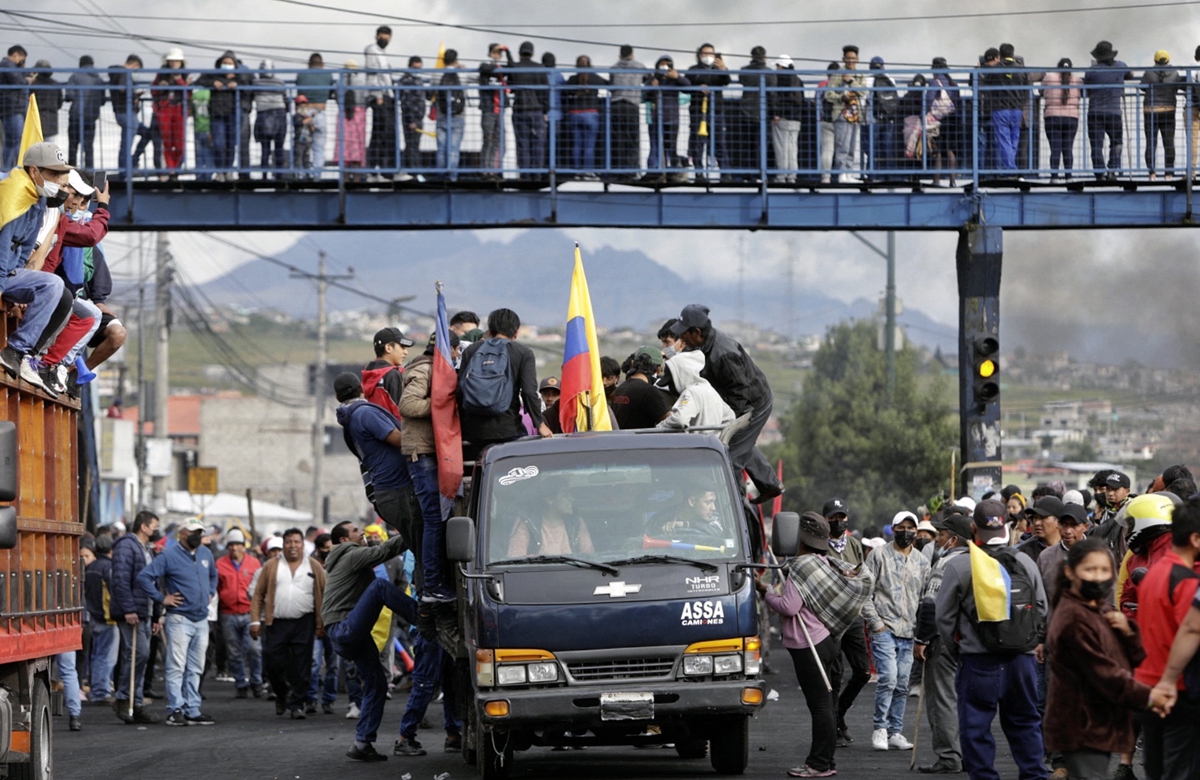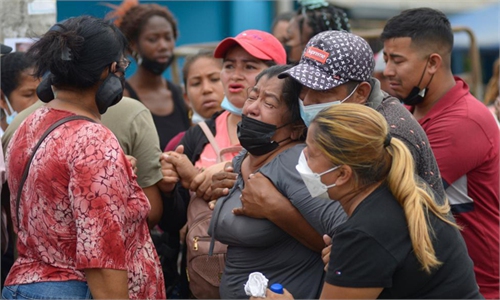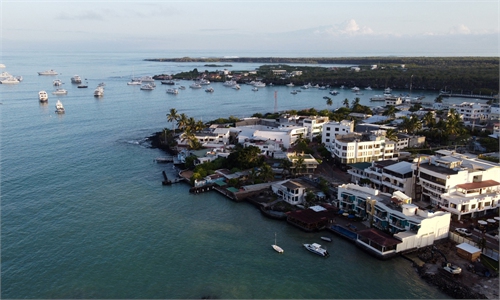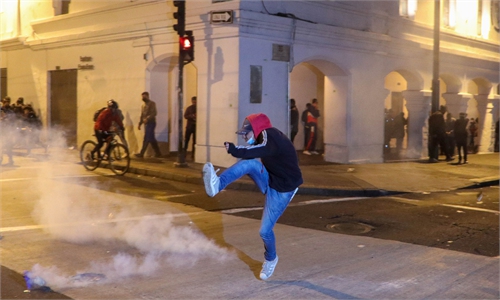
Indigenous people arrive at Cutuglagua, on June 20, 2022, before marching toward El Arbolito park in Quito, Ecuador. Photo: AFP
Thousands of indigenous people and members of other disgruntled groups marched into Ecuador's capital on the eighth day of fuel price protests on Monday.
President Guillermo Lasso, who accused protesters of seeking only "chaos" and his removal, extended a state of emergency to cover six provinces, with a nighttime curfew in Quito, as he sought to curtail the demonstrations that have seen roads barricaded countrywide and left dozens of people injured.
"With this decision, the welfare of citizens is safeguarded in the face of violence. At the same time, the rights of those who demonstrate peacefully are protected," the government said.
On foot, on motorcycles and in crowded trucks, the indigenous protesters began a peaceful march toward the city center from Cutuglagua, an area in southern Quito where they have been steadily growing in number since Sunday.
A hundred indigenous people also entered the city from the north.
The powerful Confederation of Indigenous Nationalities of Ecuador (CONAIE) - credited with helping topple three presidents between 1997 and 2005 - called for the protest as Ecuadorans increasingly struggle to make ends meet.
Indigenous people comprise more than 1 million of Ecuador's 17.7 million inhabitants, and their protest has since been joined by students, workers and others feeling the economic pinch.
A state of emergency declared on Friday allowed Lasso to mobilize the armed forces to maintain order, suspend certain civil rights and declare curfews.
Oil producer Ecuador has been hit by rising inflation, unemployment and poverty exacerbated by the coronavirus pandemic.
Fuel prices have risen sharply since 2020, almost doubling for diesel from $1 to $1.9 per gallon and rising from $1.75 to $2.55 for gasoline.
CONAIE demands a price cut to $1.5 a gallon for diesel and $2.1 for gasoline.
It also wants food price controls and a commitment to renegotiating the personal bank loans of about 4 million families.



